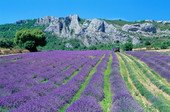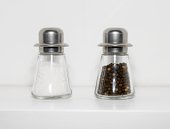
When I was 10 or 11 and discovered historical fiction of the "bodice ripping" variety, I naively accepted the very common story arc of a heroine who was profoundly liberated and over educated for her time.
I encountered this heroine in countless novels - she was a character written as someone to whom I could easily relate. It seemed that all that would be necessary to turn her into a modern woman would be to replace the bodice with a miniskirt and voila – there she is, Keira Knightley in Pirates of The Caribbean! As if clothing rather than fundamental ideas and worldview was all that separated she and I. It was assumed that the exceptional heroine in the story, living two or three hundred years before me, nevertheless thought as I did then as a late 20th century young woman.
It’s seemed that all the authors had the same list, engraved in stone, of things that must be included:
1. Mother died in childbirth or from other genteel upper class illness? Check.
2. No gaggle of grandmothers, aunts or female cousins handy on whom to foist the motherless daughter? Check.
3. Over-identification with father, thereby learning masculine ideas? Check.
4. Expresses self in a fiery or tempestuous manner? Check.
5. Seeks out atypical adventures for her age and time? Check.
6. Course of true love is rocky, involving stormy arguments and steamy misunderstandings, heaving bosoms and throbbing members? Check.
I was always interested in history, so I give these books a bit of a pass - at least the settings and political events encouraged me when young to delve into actual history.
Yet in actual history stories of average womens' lives were shunted by the wayside, viewed as deeply uninteresting - after all, women didn't lead armies. (Except Joan of Arc - but what
was she truly after? Martyrdom? Power? She did have the light-years before her time sartorial androgynity, what with the armor-wearing sword-wielding gig, and had for the time a very feminine mystical sense. What she mostly had, whether you believe in her visions or not, was some serious balls. Any woman who convinced French royalty that she could lead an army against the English had balls.)
Women didn't hold political office or practice law, discover planets, circulation of the blood, or found L'Escoffier.
Yet along the way there have been exceptional women, and average ones - the huge amount of knowledge and information our female ancestors had about living lives on the blunt edge of survival has much to teach us. They made their own soap, beer, lighting, food, cooking implements, medicines, clothing - things that 21st century Western women rarely do. They were generalists rather than specialists.
Women were as a rule uneducated - but then, non-aristocratic men were barely educated. Maybe women couldn't read or write but they could trap and skin rabbits, cook a nutritious stew from the meat, tan the hide and sew the result into a child's hood.
I freely confess I can't do that. I have a grasp of computer technology, operate microwave ovens, DVD players, am a whiz at geography, and can speak, read and write my native language and French. Hmm. Although I'm very crafty, resourceful, and a quick study, if I were parachuted into the past I'd last a good week or so before giving up. I just don't have their mad skills, and in the 21st century Western world I don't need them.
It's not enough to push buttons or master a keyboard or program the garage door opener. It's not enough to be grateful that Western women live when not only modern conveniences save our time and are under our control but a time when we can lead armies, hold political office, practice law, discover new planets - and even found another L'Escoffier.
I think every woman should have at least one honest earthbound skill in her repertoire, and it needn't be traditionally female but it should be
useful - knowing how to shear sheep, tan leather, or put up drywall. The mastery of needlework, gardening, or growing medicinal herbs. The skill in making beer, candles, or distilling perfume -
something that is hard to do, that requires patience and trial and error, something that requires one to ignore the easy way and accept the long and protracted way.
It's a way of paying homage to women of the past, in a way I think they would find quite apt.










